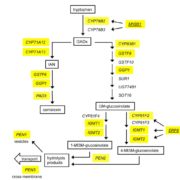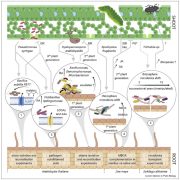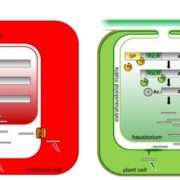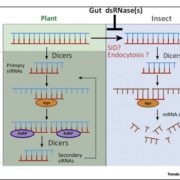Artificial light at night as a new threat to pollination ($)
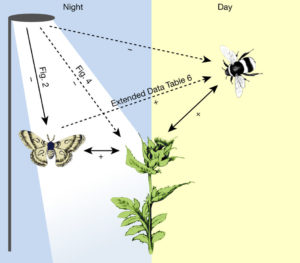 During our holidays, many of us plant scientists love to go to re-energize in remote places, ideally with no technology. Have you ever imagined how our “advanced” way of living is changing our environment? In a recent paper, Knop et al. show evidence that nocturnal pollinators are negatively affected by Artificial Light At Night and that consequences are observed on the success of plant reproduction; for example, in their study they showed a 62% reduction in pollinator visits and a 13% reduction in fruit set in artificial light at night conditions. This is big news if we consider the importance of pollination to wild and crop plants and the crucial service of these animals for global food supply. Although more experiments are needed, this study emphasizes the importance of studying global interacting communities and also the need for supporting plant science research. (Summary by Maria Julissa Ek Ramos). Nature 10.1038/nature23288.
During our holidays, many of us plant scientists love to go to re-energize in remote places, ideally with no technology. Have you ever imagined how our “advanced” way of living is changing our environment? In a recent paper, Knop et al. show evidence that nocturnal pollinators are negatively affected by Artificial Light At Night and that consequences are observed on the success of plant reproduction; for example, in their study they showed a 62% reduction in pollinator visits and a 13% reduction in fruit set in artificial light at night conditions. This is big news if we consider the importance of pollination to wild and crop plants and the crucial service of these animals for global food supply. Although more experiments are needed, this study emphasizes the importance of studying global interacting communities and also the need for supporting plant science research. (Summary by Maria Julissa Ek Ramos). Nature 10.1038/nature23288.


